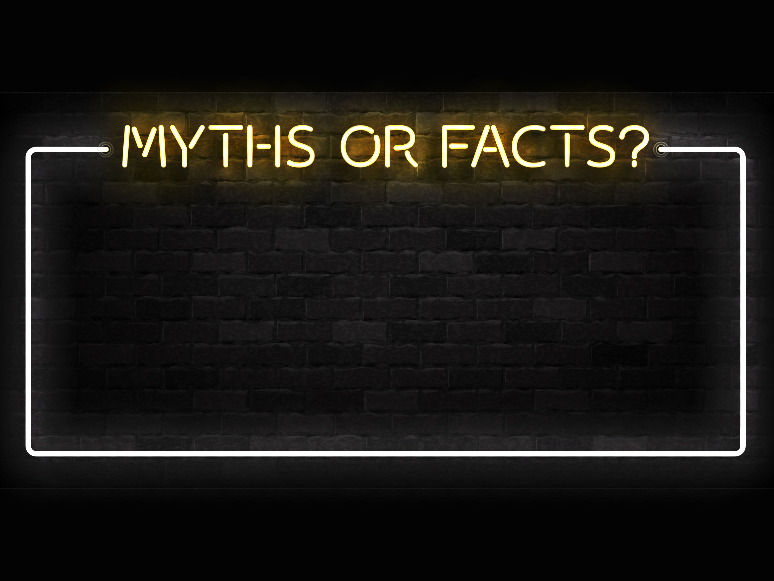logo


31st Mar, 2022

In the Budget, the Government did not announce any personal tax rates changes. The Stage 3 tax changes commence from 1 July 2024, as previously legislated.
The 2022–2023 tax rates and income thresholds for residents are unchanged from 2021–2022:
Stage 3: from 2024–2025
The Stage 3 tax changes will commence from 1 July 2024, as previously legislated. From 1 July 2024, the 32.5% marginal tax rate will be cut to 30% for one big tax bracket between $45,000 and $200,000. This will more closely align the middle tax bracket of the personal income tax system with corporate tax rates. The 37% tax bracket will be entirely abolished at this time.
Therefore, from 1 July 2024, there will only be three personal income tax rates: 19%, 30% and 45%. From 1 July 2024, taxpayers earning between $45,000 and $200,000 will face a marginal tax rate of 30%. With these changes, around 94% of Australian taxpayers are projected to face a marginal tax rate of 30% or less.
The low and middle income tax offset (LMITO) will be increased by $420 for the 2021–2022 income year so that eligible individuals will receive a maximum LMITO benefit up to $1,500 for 2021–2022 (up from the current maximum of $1,080).
This one-off $420 cost of living tax offset will only apply to the 2021–2022 income year. Importantly, the Government did not announce an extension of the LMITO to 2022–2023. So it remains legislated to only apply until the end of the 2021–2022 income year (albeit up to $1,500 instead of $1,080).
The Government said the LMITO for 2021–2022 will be paid from 1 July 2022 to more than 10 million individuals when they submit their tax returns for the 2021–2022 income year. Other than those who do not require the full offset to reduce their tax liability to zero, all LMITO recipients will benefit from the full $420 increase. That is, the proposed one-off $420 cost of living tax offset will increase the maximum LMITO benefit in 2021–2022 to $1,500 for individuals earning between $48,001 and $90,000 (but phasing out up to $126,000). Those earning up to $48,000 will also receive the $420 one-off tax offset on top of their existing $255 LMITO benefit (phasing up for incomes between $37,001 and $48,000).
All other features of the current LMITO remain unchanged (including that it will only apply until the end of the 2021–2022 income year). Consistent with the current LMITO, taxpayers with incomes of $126,000 or more will not receive the additional $420.
As already noted, the Government has proposed that eligible taxpayers with income up to $126,000 will receive the additional one-off $420 cost of living tax offset for 2021–2022 on top of their existing LMITO benefit.
Currently, the amount of the LMITO for 2021–2022 is $255 for taxpayers with a taxable income of $37,000 or less. Between $37,000 and $48,000, the value of LMITO increases at a rate of 7.5 cents per dollar to the maximum amount of $1,080. Taxpayers with taxable incomes from $48,000 to $90,000 are eligible for the maximum LMITO of $1,080. From $90,001 to $126,000, LMITO phases out at a rate of 3 cents per dollar.
Low income tax offset (unchanged)
The low income tax offset (LITO) will also continue to apply for the 2021–2022 and 2022–2023 income years. The LITO was intended to replace the former low income and low and middle income tax offsets from 2022–2023, but the new LITO was brought forward in the 2020 Budget to apply from the 2020– 2021 income year.
The maximum amount of the LITO is $700. The LITO will be withdrawn at a rate of 5 cents per dollar between taxable incomes of $37,500 and $45,000 and then at a rate of 1.5 cents per dollar between taxable incomes of $45,000 and $66,667.
For the 2021–2022 income year, the Medicare levy low-income threshold for singles will be increased to $23,365 (up from $23,226 for 2020–2021). For couples with no children, the family income threshold will be increased to $39,402 (up from $39,167 for 2020– 2021). The additional amount of threshold for each dependent child or student will be increased to $3,619 (up from $3,597).
For single seniors and pensioners eligible for the SAPTO, the Medicare levy low-income threshold will be increased to $36,925 (up from $36,705 for 2020– 2021). The family threshold for seniors and pensioners will be increased to $51,401 (up from $51,094), plus $3,619 for each dependent child or student.
Legislation is required to amend these thresholds, and a Bill will be introduced shortly.
The Budget papers confirm that the costs of taking COVID-19 tests – including polymerase chain reaction (PCR) tests and rapid antigen tests (RATs) – to attend a place of work are tax deductible for individuals from 1 July 2021. In making these costs tax deductible, the Government will also ensure FBT will not be incurred by businesses where COVID-19 tests are provided to employees for this purpose.
This measure was previously announced 8 February 2022.
The Government will reduce the excise and excise- equivalent customs duty rate that applies to petrol and diesel by 50% for six months. The excise and excise- equivalent customs duty rates for all other fuel and petroleum-based products, except aviation fuels, will also be reduced by 50% for six months.
The Treasurer said this measure will see excise on petrol and diesel cut from 44.2 cents per litre to 22.1 cents. Mr Frydenberg said a family with two cars who fill up once a week could save around $30 a week, or around $700 over the next six months. The Treasurer made a point of emphasising that the Australian Competition and Consumer Commission (ACCC) will monitor the price behaviour of retailers to ensure that the lower excise rate is fully passed on.
The measure will commence from 12.01 am on 30 March 2022 and will remain in place for six months, ending at 11.59 pm on 28 September 2022.
16th Nov, 2021

The ATO has recently issued an alert warning taxpayers against disguising undeclared foreign income as gifts or loans from related overseas entities, including family and friends. It says it has continued to encounter situations where Australian resident taxpayers have derived amounts of income or capital gains offshore that are assessable, but the taxpayers have failed to declare the amounts in their income tax returns.
The ATO will now be looking closely at arrangements where taxpayers are aware of their residency status and the tax implications that flow from it, but attempt to avoid or evade tax of their foreign assessable income by disguising amounts as either gifts or loans from a related overseas entity.
If family or friends who live overseas have provided a genuine monetary gift or loan to you or your business, you should keep as much supporting documentation as possible about it. This is because if there is any uncertainty about whether particular amounts are genuine gifts or loans, the ATO will form a view based on all of the available evidence.
Contemporaneous and complete records should include detailed financial records, full loan documentation, formal identification of the giver and any declarations they made about the money in their country of residence. A deed of gift or a statutory declaration may not be accepted as conclusive evidence.
Inheritances also count as “gifts”. If you receive an inheritance from overseas, a certified copy of the person’s will or a distribution statement for the estate should be a part of your recordkeeping.
01st Dec, 2020

The ATO has recently outlined its expectations for businesses post-COVID. Overall, it warns companies against using loopholes to obtain benefits from the various government stimulus packages and urged them to follow not only the letter of the law, but also the spirit of the law. Specifically, it reminds taxpayers that measures such as the expanded instant asset write-off and the loss carry-back scheme should not be used in artificial arrangements for businesses to obtain an advantage.
In a recent speech, ATO Second Commissioner of Client Engagement Jeremy Hirschhorn outlined the expectations for businesses, noting that while companies are largely compliant – with 92.5% voluntary compliance at lodgment and 96.3% after compliance activity – the ATO is seeking to increase the percentages to 96% and 98% respectively.
Corporate taxpayers can use ATO information to compare their performance against those of their peers in relation to income tax. The ATO also urges those taxpayers to use its GST analytics tool, which allows businesses to reconcile financial statements to business activity statements (BASs) and to follow its GST best practice governance guide.
Businesses have been entrusted with leading economic recovery via access to a range of government stimulus measures, and with this trust comes increased expectations around corporate behaviour – including tax. Ultimately, Mr Hirschhorn said, a tax system is about underpinning a country’s social contract by collecting the revenue that funds its program and services.
15th Aug, 2020

The ATO has published a list of common mistakes and misconceptions taxpayers have around tax time:
11th Apr, 2020

Victims of the recent natural disasters beware: there is an SMS scam circulating that purports to give you “a bonus” on your 2020 tax return. The scam urges victims to start the process by filling out a form and provides a link to a what looks like the genuine myGov website. According to the ATO, this is a classic case of scammers impersonating the ATO in an effort to collect personal information including names, birth dates, addresses, emails, phone numbers and online banking login details.
Once this information is obtained, scammers can use it to commit identify theft, including porting your phone, accessing your bank account, obtaining a loan in your name, lodging tax returns, stealing your superannuation and committing other types of fraud, or they could on-sell the information to others who may commit these offences.
If you receive a call from someone saying they are from the ATO but you aren’t sure, the best course of action is to hang up and call the ATO back on the appropriate number listed on its website, or to call your tax agent directly on their listed number to seek advice. While the ATO does send SMS messages and emails and calls taxpayers, it’s important to remember that the ATO will never:
If you’ve fallen victim to this or other tax-related scams, don’t be ashamed, but contact the ATO as quickly as possible. The sooner you notify the ATO, the better the outcome is likely to be.
12th Feb, 2020

In 2018, the ATO issued a controversial draft ruling which took a very strict stance on the four-year time limit for claiming input tax credits and fuel tax credits. The ruling had been used by the ATO to deny input tax credits and fuel tax credits where the Commissioner of Taxation made a decision outside the four-year period on an objection or amendment request, even where the objection or request was made within the period. However, a recent observation by a judge ruling on a related matter has put the ATO’s strict stance in doubt and as a result the ruling (Draft Miscellaneous Taxation Ruling MT 2018/D1) has been withdrawn.
Where the Commissioner makes a decision on an objection or requests for amendment in relation to input tax credits and/or fuel tax credits outside the four-year period but the initial objection or amendment request was lodged within the time limit, the taxpayer will no longer be automatically denied the credits in situations where the decision is in the taxpayer’s favour.
As a result, any taxpayer that the draft ruling has affected is encouraged to contact the ATO.